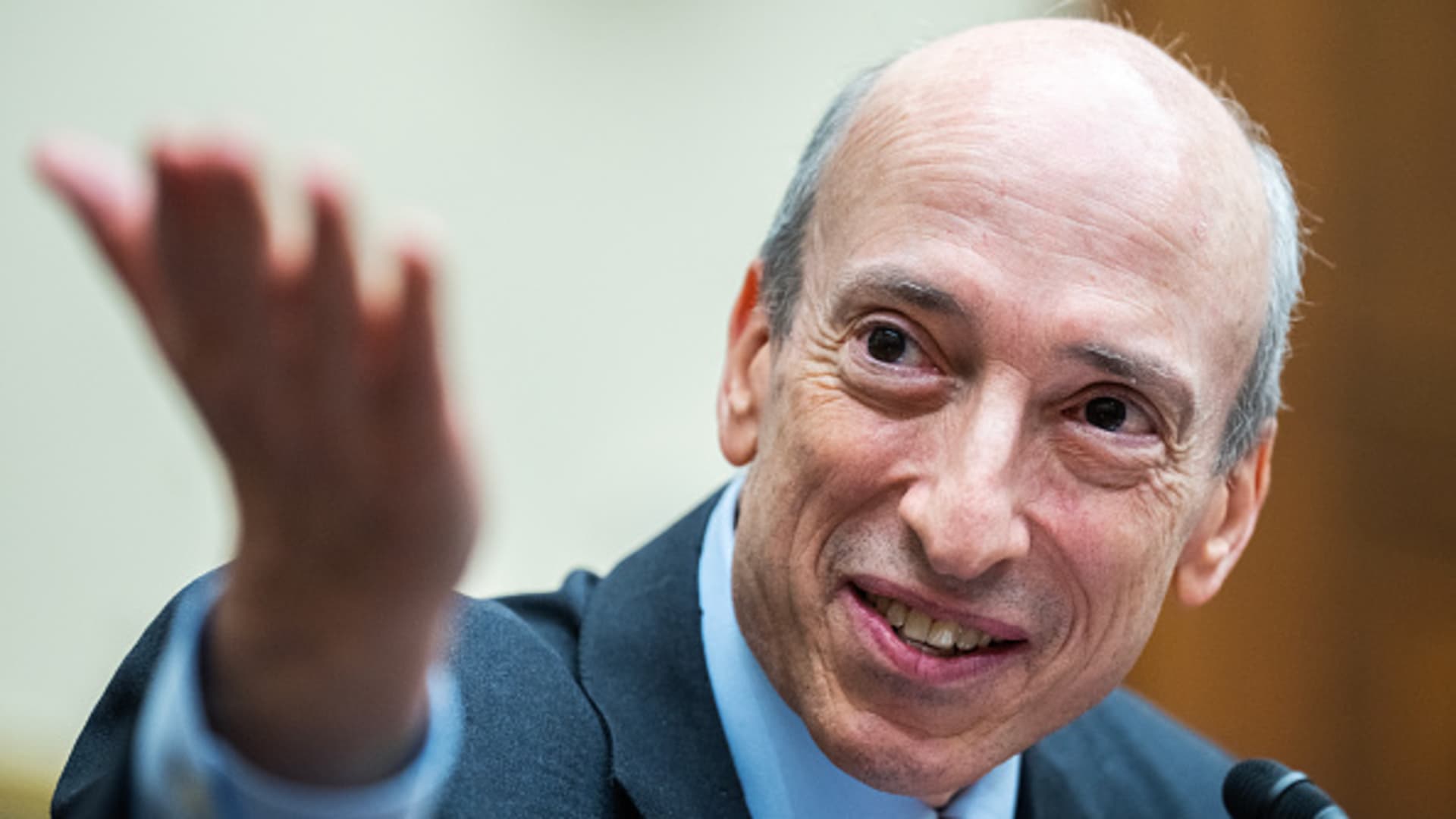The Securities and Exchange Commission, lead by Chair Gary Gensler, is voting Wednesday on new rules to curb SPACs.
Special Purpose Acquisition Companies, sometimes called “blank check companies,” are companies formed to raise capital through an initial public offering for the purpose of buying or merging with an existing company.
Gensler says the new rules are necessary to protect investors.
“Functionally, the SPAC target IPO is being used as an alternative means to conduct an IPO,” Gensler said in a March 2022 statement on the proposed regulations.
Gensler is no fan of SPACs
Gensler has been hostile to SPACs since the beginning of his tenure at the SEC. In a video published on the SEC website in December 2021, Gensler was openly disdainful of SPACs:
“Suppose a group of strangers came up to you and said, ‘I have a company that doesn’t do much of anything, but sometime in the next two years will merge with another company. I don’t know what that company is yet.’ Would you invest in the stranger’s company?” Gensler says in the clip. “That’s essentially what a special purpose acquisition company, a SPAC, does.”
Gensler has also been critical of the high 20% sponsor fees associated with SPACs, as well as other fees for bankers and financial advisors.
He’s also been critical of how SPAC investors have been diluted by the use of so-called private investments in public equity, which allow investors, mostly big institutions, an additional opportunity to put money into the SPAC. PIPE investors can often can buy shares at a discount after a target merger, Gensler has asserted.
SPACs: Much more disclosures will be required
The new rules will:
1) Expand disclosure requirements regarding SPAC sponsors, SPAC sponsor compensation, conflicts of interest, dilution, and the target company. After a blank-check SPAC goes public, it will usually announce within two years the acquisition of a target company, which is known as a de-SPAC transaction. The new rules would also require additional disclosures from a board of directors about whether the de-SPAC transaction is in the best interests of the SPAC and its shareholders.
2) More closely align disclosure and legal liabilities for de-SPACS with those of traditional IPOs. Executives marketing de-SPACs often made wild claims about the future profitability of their companies, claims which would never have been possible to make had a traditional IPO route been used.
“The idea is that parties to the transaction shouldn’t use overly optimistic language or over-promise future results in an effort to sell investors on the deal,” Gensler said in a March 2022 news release.
The new rules would make the legal obligations and liabilities for a de-SPAC transaction similar to those of traditional IPOs. It would, for example, make the target company legally liable for any statement made about future results by assuming responsibility for disclosures.
Forward-looking statements: No safe harbor
Companies are provided with a “safe harbor” when they make forward looking statements, which provide them with protection against certain legal liability.
However, IPOs are not afforded this “safe harbor” protection, which is why forward-looking statements in an IPO registration are usually very cautiously worded. The proposed rules would also make the “safe harbor” legal protections for forward-looking statements unavailable for blank check companies, meaning they could more easily be sued.
The SPAC market has already collapsed
2020 and 2021 were record years for SPAC IPO filing. In comparison, there were 86 SPAC IPOs in 2022, a significant decrease compared to the last two years, according to Statista.
In 2023, the SPAC craze collapsed. Bloomberg data cited by Forbes indicated that 21 firms that had gone public via SPACs went bankrupt in 2023, the largest of which was flexible workplace provider WeWork, which filed for Chapter 11 protection in November 2023. Lordstown Motors also filed for bankruptcy.
When asked if the SPAC craze was over on CNBC’s “The Exchange” on Tuesday, Duncan Davidson of Bullpen Capital laughed and said, “Yes. The SPAC companies were highly speculative and they collapse and nobody wants to touch a SPAC.”
Still, better late than never.
“Investors deserve the protections they receive from traditional IPOs, with respect to information asymmetries, fraud, and conflicts, and when it comes to disclosure, marketing practices, gatekeepers, and issuers,” Gensler said in the March 2022 statement when the rules were proposed.
An SEC spokesman acknowledged there had been a decline in SPAC activity since 2021, but there is still activity in the marketplace.
“The types of rules we are recommending are investor protections and disclosures that we think are necessary regardless of market fluctuations,” the spokesman said.
